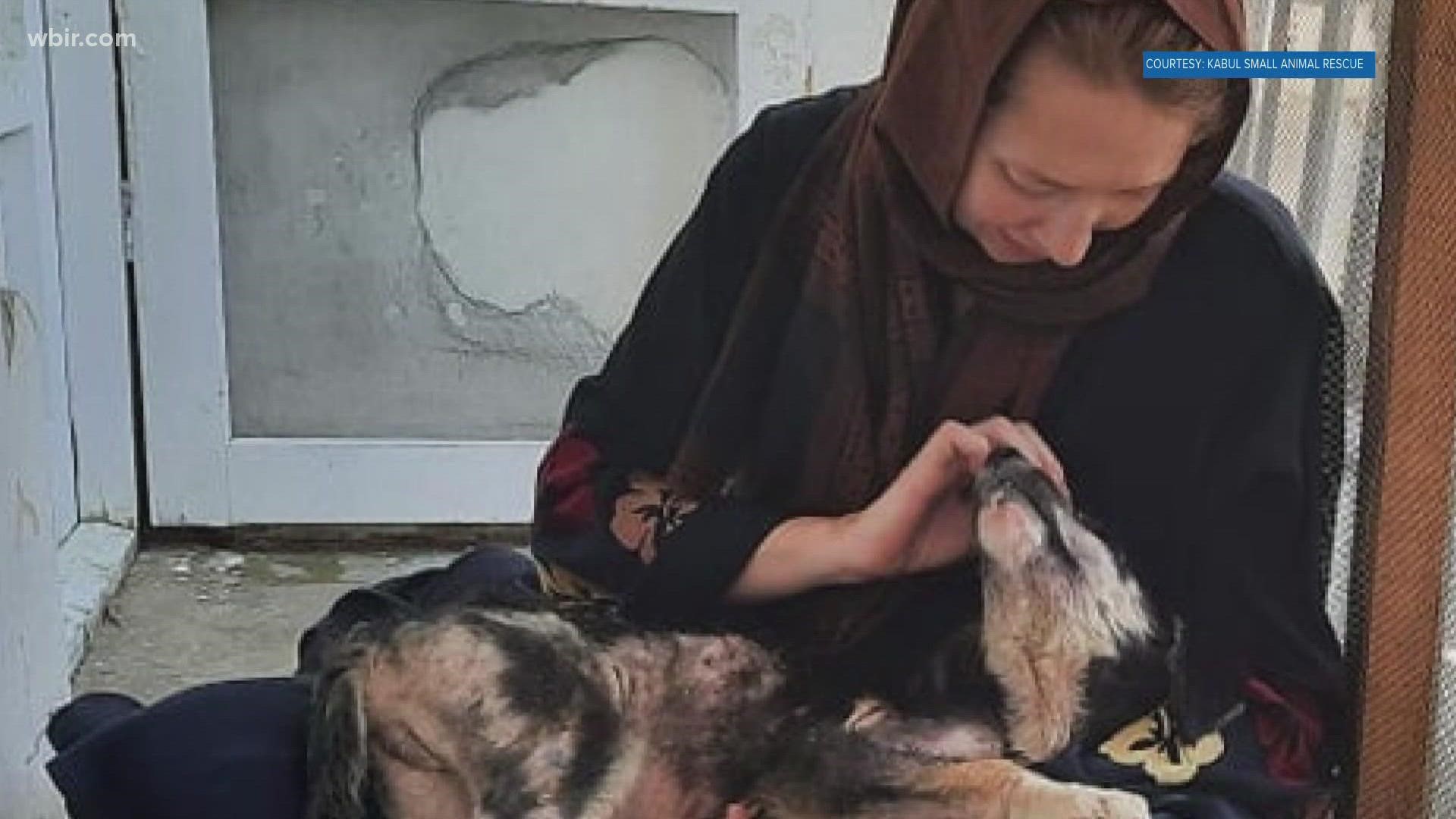KABUL, Afghanistan — As American forces pulled out of Kabul and left Afghanistan, people in the country faced chaos. The Taliban seized control of the capital and assumed authority over the country, and thousands of people were trying to flee.
But in the midst of the rush aboard planes and vehicles headed out of Afghanistan, an East Tennessee woman stayed behind. She said she had animals to care for.
"It's not kind to them," said Charlotte Maxwell-Jones, a woman from Oliver Springs who founded Kabul Small Animal Rescue. "It's not really a kind place for any species right now."
On Jan. 31, she said she breathed a sigh of relief as she watched a plane leave Afghanistan. Onboard were 286 dogs and cats bound for a brighter future.
“They’re going to fosters and going to rescues," she said. "They’re getting proper veterinary care. They’re starting new lives in safety."
Since then, the Anderson County native and her team spent months coordinating and fundraising to get even more animals in their care out of the country.
It took that same kind of focus and perseverance to build her clinic in the country, ever since first arriving in 2010 as a Ph.D. candidate in Archaeology. She said that under a U.S.-backed government, Kabul was a vibrant city that was filled with men, women and tons of stray animals.
So, she decided to start Kabul Small Animal Rescue to help the dogs and cats she spotted along the city's streets.
“We ended up starting as a very, very small clinic and small rescue. During COVID, it just bloomed,” said Maxwell-Jones. “We ended up being the only rescue in town that was still accepting animals and it got enormous.”
In August 2021, her clinic reached a tipping point. She said they were caring for too many animals, with too few resources, while trying to work through the COVID-19 pandemic before the Taliban arrived.
Maxwell-Jones said Americans and their allies were told to leave, and she had a chance to leave too.
“The next morning, I walked into the office of a fairly senior Taliban member and asked for protection and for permission to operate until we left, at that point," she said.
They spent days organizing the staff, their families and more than 200 dogs and cats before heading out to the Kabul airport to evacuate. She said only nine people in the group managed to fly out, and she said the U.S. military released dozens of dogs.
She said the military turned her away when she refused to get on a plane without the dogs she was caring for.
“I actually got those same Taliban to pick me up from the airport because there was no way to safely make it home," said Maxwell-Jones.
Since then, she said she has run the clinic while the country is under Taliban rule. The takeover changed life in the country, she said.
Maxwell-Jones can not have women on staff, and people in Kabul are desperate to meet basic needs. She is working with the clinic to help where they can, but the small animal rescue can only do so much to help an entire country.
"I was robbed at gunpoint in my own home, but that’s because people are desperate. People have no cash. People have no food," she said. "We have staff and we pay them a living wage. We pay for their medical care. We do food aid, provide blankets and food for extended family."
Surrounded by desperation, she said she still sees hope. Maxwell-Jones reflects on that January flight that carried the 286 dogs and cats out of harms’ way. They landed in Vancouver, Canada where they will eventually be fostered and adopted.
And some will be reunited with their owners who were evacuated from Afghanistan last August. For Maxwell-Jones, it’s bittersweet. But it also means the dogs and cats she spent years caring for will have a better future.

